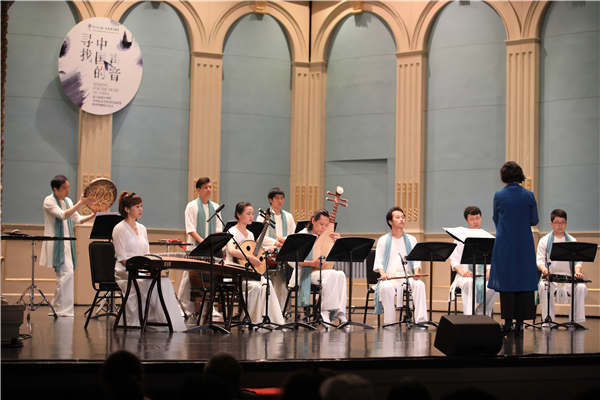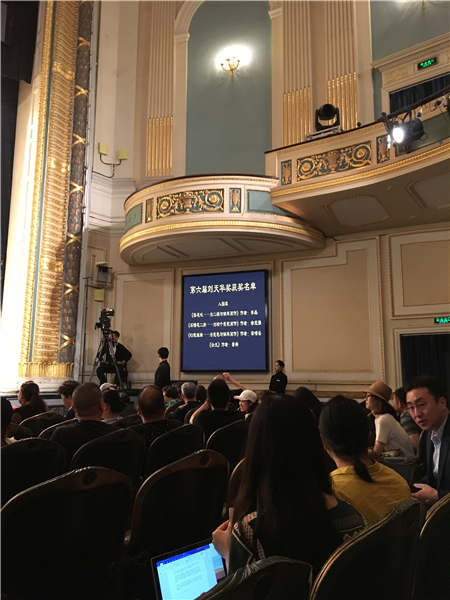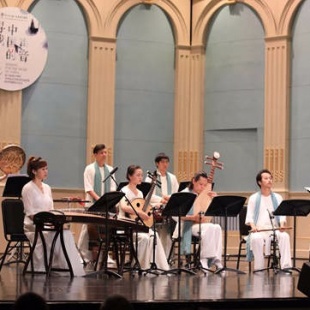Seeking composure


The search for new works in contemporary Chinese music culminates in a Shanghai finale. Zhang Kun reports.
Shanghai Chinese Orchestra hosted a Chinese chamber music composition contest for the first time, in a bid to discover new composers and works of contemporary Chinese music.
The final round of the Liu Tianhua Chinese Chamber Music Composition Contest took place at the Shanghai Concert Hall on May 14, which was judged by a panel of nine scholars and industry leaders, 20 members of the media, as well as 445 audience members.
The top prize was won by Chen Xinruo, a composer from Beijing.
"This is the first major academic award I have received," Chen says in a telephone interview with China Daily. "I have won awards for my pop music compositions before, and my songs usually contain elements of traditional Chinese music."
Chen's award-winning composition, a piece inspired by imagery from the Tang Dynasty named Se Ju Teng (All Colors Soaring), will be performed and promoted by the SHCO, and the company will continue to commission new creations from him, as one of the company's contract artists for 2018-19, according to Luo Xiaoci, director of the SHCO.
"By hosting the contest, we hoped to find more high-quality music works that are suitable for public performances and broadcasting," Luo said.
Creativity is the key to the development of Chinese music and there has not been enough outstanding original works recently, she says.
A large number of great new compositions were created in the 1960s, when a major reform of the instruments and music system took place in China's folk music scene. Many of the pieces have become household melodies in China, and joined the repertoire of folk orchestras all over the country, according to Liu Xijin, head of the Chinese Folk Music Orchestra Society. Over the past decades, however, few good works have been created.
In the 1980s composers of Chinese music still tended to work using traditional methods, with only a few pieces being created by instrumentalists. Composer Tan Dun from the Central Conservatory of Music made his major breakthrough in 1983, creating an international-award winning quartet that combined traditional Chinese music with Western composition methods, Liu recalls.






































